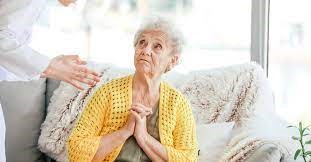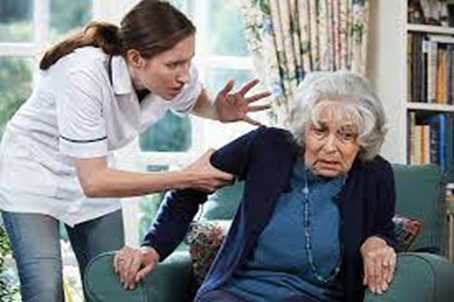When most people imagine nursing home abuse, they think of staff members causing physical harm to residents. However, as the Centers for Disease Control and Prevention explains, elderly abuse can take many forms including emotional, financial and even sexual mistreatment.

If you or a loved one was the victim of nursing home abuse in Arizona, contact the Rudolph & Hammond Law Firm. A Scottsdale personal-injury lawyer will evaluate your case to determine if you may have grounds for a claim. Call 480-951-9700 to schedule a consultation.
Until then, read on to learn four common types of nursing home abuse:
- Financial
According to the National Council on Aging, up to five million older Americans are abused each year with an annual estimated loss of $36.5 billion due to financial abuse. When residents rely on their caregivers to manage bank accounts and read sensitive mail, they become easy targets. Identity theft is rife, along with health-care fraud, donations to fake charities and outright stealing.
Seniors are prime targets for financial fraud due to being trusting and polite, as the Federal Bureau of Investigation explains. Health-care fraud is particularly common. Violating health-care policies can alter the victim’s medical history, accrue a huge debt for fake services and even result in withholding of vital treatment. Here are some indications of financial abuse:
- Strange withdrawals or charges on financial statements;
- Unpaid bills start piling up;
- Money or personal property begins disappearing;
- New beneficiaries suddenly added to life insurance policies;
- And suspicious changes to powers of attorney or wills.
- Physical
Physical abuse involves intentionally inflicting harm upon residents – often by kicking, slapping or restraining with chains and straps. It also includes administering illegal drugs or withholding medications to punish residents. Physical abuse is significantly easier to identify and prove than other types of elderly abuse. Watch out for these signs:
- Hesitance to leave you alone with your loved one;
- Unexplained physical marks and injuries such as broken bones, bruises, sprains or scars;
- Unusual claims on medication reports, such as overdosing or refusing to medicate;
- And restraint injuries on legs or wrists.
- Sexual
Some of our elderly residents endure dehumanizing sexual abuse. Residents who are heavily reliant on others for personal hygiene are most at risk.
These cases are underreported. Victims often choose silence when the perpetrator is the one responsible for these reports.
Sexual abuse is not always physical; it includes inappropriate verbal remarks and forced acts of humiliation, such as telling someone to strip in a crowd. These signs are common indicators of sexual abuse:
- Genital or breast injuries;
- Torn or stained bedding and clothes;
- Sexually transmitted diseases;
- And unexplained genital bleeding.
- Emotional
Emotional abuse is often difficult to prove, but it is still destructive and can cause health problems for elderly victims. Nursing home staff members can intentionally cause elderly residents severe distress, resulting in terrible anxiety, fear and anguish. Sometimes it is verbal abuse; other times, the staff ignores a patient’s urgent requests and needs. Here are some warning signs:
- Caregivers will not allow you to spend time alone with your loved one, refusing outright in some cases;
- And suspicious behavior from the caregiver, such as verbal threats.
If your loved one was the victim of nursing home abuse, contact the Rudolph & Hammond Law Firm. A Scottsdale accident attorney can explain your legal options. We have more than 30 years of combined experience protecting the rights of the injured. Call 480-951-9700 to schedule a consultation.
